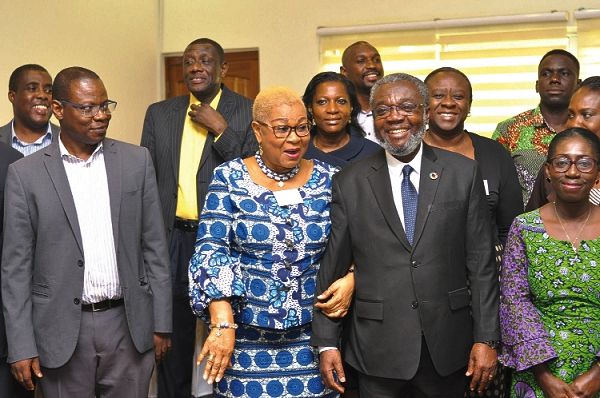A national stakeholders’ meeting on cross-sectoral collaboration was held in Accra yesterday, towards the elimination of neglected tropical diseases (NTDs), in the country.
Organised by the United States Agency for International Development (USAID), in collaboration with World Vision International (WVI), with support from the Ghana Health Service (GHS) and fhi360, a not-for-profit human development organisation dedicated to improving lives, the meeting discussed how to ensure sustainability in multi-sectoral collaboration to help end NTDs in the country by 2020.
There are 14 endemic but neglected tropical diseases in Ghana.
They are Lymphatic filariasis (elephantiasis), Onchocerciasis (river blindness), Schistosomiasis (bilhazia) and Soil-transmitted helminthes (intestinal worm infestation).
Others are Rabies, Yaws, snakebite-envenoming, scabies, Leprosy, Buruli ulcer, human African trypanosomiasis (sleeping sickness and Leishmaniasis.
The last two which are Blinding Trachoma and Dracunculiasis (Guinea Worm Disease) have, however, been eleminated in the country.
The worst affected areas are poor communities and housing quality where access to clean water and sanitation is limited.
The collaboration which is led by the USAID-funded Act to End NTDs West programme, aims at supporting the elimination of NTDs in 11 countries, namely, Ghana, Benin, Burkina Faso, Cameroon and Guinea.
The rest are Cote d’Ivoire, Mali, Niger, Senegal, Sierra Leone and Togo.
NTDs
According to the World Health Organisation (WHO), NTDs are a diverse group of 20 diseases that prevail in tropical and sub-tropical conditions in 149 countries and affect more than one billion people.
Six of the NTDs, according to the Centre for Disease Control (CDC), could be controlled or even eliminated through mass administration of safe and effective medicines (mass drug administration- MDA) or other interventions.
The six are Drancunculiasis (Guinea Worm Disease), Lymphatic filariasis, Onchocerciasis, Schistosomiasis, Soil-transmitted Helminths (Ascaris, hookworm and whipworm) and Trachoma.
Efforts
According to the Director General of the GHS, Dr Anthony Nsiah-Asare, Ghana had so far been able to eliminate Trachoma as a disease of public health importance in the country.
He said when issues of nutrition and water, sanitation and hygiene (WASH) were addressed, it could help solve many of the NTDs, adding that there was a strong and direct relationship between under-nutrition and NTDs.
He said mass drug administration (MDA) was the major strategy currently being proposed to control many NTDs, since it was crucial to controlling disease transmission.
However, he said, MDA “cannot do it alone, hence the need for inter-sectoral collaboration on proper sanitation and hygiene facilities”.
The National Director of the WVI, Mr Dickens Thunde, explained that the global strategy of the organisation was helping vulnerable children in the world.
He said the organisation was looking out to collaborate with and partner others which shared similar visions.
A Technical Director of Act to End NTDs/West, Mr Stephen Omunyidde, said the meeting was aimed at increasing the understanding of NTDs and the significance of sustainability among statkeholders.
Challenges
Giving an overview of NTDs in Ghana, the Programme Manager of the NTD Programme, Dr Benjamin Marfo, said over the years, the programme had been using MDA, morbidity control and management and health education to help in controlling the diseases in the country.
He mentioned some of the challenges the programme was encountering to include apathy on the part of volunteers who were often not caregivers, community inertia, weak monitoring and supervision, insecurity during field visits, cross-border issues such as population movement, retirement of highly skilled staff and decrease political commitment.
Introducing the USAID’s Act to End NTDs/West programme to the stakeholders, the Health Systems Strengthening Lead, Dr Justin Tine, said the goal of the programme was to eliminate Lymphatic filariasis and trachoma as public health problems.
It was also to eliminate Oncho in the Americas, as well as eliminate or control it in selected African countries, he said.
The programme, he said, was also to control schisto and STH in supported countries.
According to Dr Tine, the framework for the programme was focused mainly on six outcomes — coordination, policy, operational capacity, HMIS, services and financing.
For her part, the Founder of Salt and Light Ministries, Dr Joyce Aryee, who is also an NTD advocate, said the time had come for the country to put the spotlight on NTDs to stop their spread.
Writer's email-rebecca.quaicoe-duho@graphic.com.gh

